Celebrities of Yangtze Area
For many thousand years, Yangtze area has successfully nurtured numerous modern and ancient celebrities. Ranging from ideologists such as Chuang- Tzu and Lao Tzu who pioneered Daoism to scientists and mathematicians like Li Bing and Hua Luogeng respectively, celebrities of Yangtze Area are many and diversified. Below is a highlight of some of the world famous celebrities of Yangtze River.
Luozu
She was the wife of Huangdi and regarded as the Mother of Chinese.
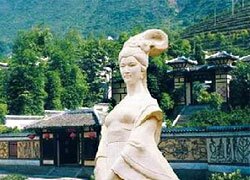 The city of Yichang is located along River Yangtze and was referred to as Xiling during the ancient time. Luozu was born in Yichang and was also known as Leizu. She was the wife of the Yellow Emperor-Huangdi and is today regarded as Mother of Chinese people.
The city of Yichang is located along River Yangtze and was referred to as Xiling during the ancient time. Luozu was born in Yichang and was also known as Leizu. She was the wife of the Yellow Emperor-Huangdi and is today regarded as Mother of Chinese people.
Huangdi and Luozu had two sons; Chang Yi and Xuan Xiao. Ancestors of various emperors of Dynasties established along Yangtze River like Zhou, Shang and Xia have kinship ties with Huangdi and Luozu. For this reason, Luozu is recognized as mother of Chinese People.
In folk and culture, Luozu means the silkworm raising mother or the silkworm raising goddess. This is because the hardworking and clever Luozu taught her people how to make silk by raising silkworms. This was, she greatly promoted society evolution. She also assisted her husband in governing the county. It is said that she died eventually of overtiredness due to overworking.
Since Yichang was her hometown, the people built a temple on Mt. Xiling during the Ming Dynasty. On 5th day of March every year as per Chinese Lunar calendar, there is a celebration of temple fair where Luozu is sacrificed in the building. Also, the locals hold a seminar on Mountain Xiling where professors communicate to the people about Luozu culture.
Qu Yuan
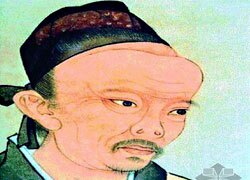 Living between 339 BC and 278 BC, Qu Yuan was the great patriotic poet of Yangtze area. Qu Yuan lived in Chu State between 476 BC and 221 BC, a period in which states along Yangtze Area were in a war. Qu Yuan is famously recognized as the earliest statesman and great patriotic poet in the history of Chinese people. He is credited for having created numerous valued works during his lifetime. His story of patriotism continues to influence the Chinese people even today.
Living between 339 BC and 278 BC, Qu Yuan was the great patriotic poet of Yangtze area. Qu Yuan lived in Chu State between 476 BC and 221 BC, a period in which states along Yangtze Area were in a war. Qu Yuan is famously recognized as the earliest statesman and great patriotic poet in the history of Chinese people. He is credited for having created numerous valued works during his lifetime. His story of patriotism continues to influence the Chinese people even today.
In 1953, the World Peace Council recognized Qu Yuan as one of the four great celebrities of culture in the world. Since Lepingili in Gui Village which is present day Zigui County was his birthplace, there are many historical relics and stories heard about him in the area today.
Wang Zhaojun
One of the four ancient beauties in Chinese history and recognized for her contributions to Ethnic relationship.
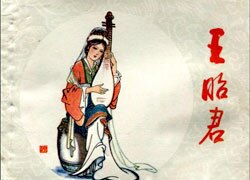 Wang Qiang or Wang Zhaojun was a very beautiful Chinese girl. She lived during the era of the Western Han Dynasty. Her birthplace was Baoping village, which was situated on the upper sides of Xiangxi Stream. When she was just aged 17 years, she was selected to meet the emperor at the palace. During this period, Yuan, the emperor of the Han Dynasty selected beauties from all over the country.
Wang Qiang or Wang Zhaojun was a very beautiful Chinese girl. She lived during the era of the Western Han Dynasty. Her birthplace was Baoping village, which was situated on the upper sides of Xiangxi Stream. When she was just aged 17 years, she was selected to meet the emperor at the palace. During this period, Yuan, the emperor of the Han Dynasty selected beauties from all over the country.
Wang Zhaojun was to wait to be selected by the emperor personally. Since there were many maids at the palace, it wasn’t possible for the emperor to meet all of them one by one. As such, an artist was asked to paint a picture of the girls so that the emperor could easily select from the pictures.
Unfortunately, the artist was bribed by some beauties and favored them in order to better their chances of being chosen by the emperor.
As a result, some girls were portrayed to be more beautiful by the artist as opposed to their true beauty. Since Wang Zhaojun never bribed the painter, she was in turn portrayed in a poor way. As such, the emperor didn’t choose her and thus couldn’t be summoned to meet him. At this period, the Huns or the ethnic minority of Xiongnu were always in battles with the Han Dynasty.
The Huns leader in 33 BC proposed that a married agreement be used to settle the problem. During this time, Han Palace was in a very bad relationship with Huns and was ready to do anything to stop the war so that the people can live peacefully. However, ladies in the court were used to their comfortable way of life and none of them was willing to leave such comforts and start a nomadic way of life together with Huns.
Wang Zhaojun volunteered to be married off to the Huns so that the county could have peace. She married Huhanye. Even though Emperor Yuan regretted for not having selected her during the farewell party of choosing beauties, he was forced to give her away without any choice in order to seal the peace policy.
Thanks to Wangzhaojun’s behavior, the battle finally came to a stop and people lived happily thereafter after Wang Zhaojun was married to Huhanye. Wang Zhaojun’s story has been narrated from one generation to the other for many years now. All the Chinese people show Wang Zhaojun great respect for her heroine act.
Cao Cao
Styled Mengde, Cao Cao was a poet, militarist and an eminent statesman during the period when the states were ever warring.
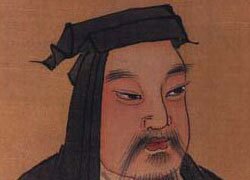 Cao Cao’s birthplace was Qiao, present day Haoxian County in the province of Anhui. Later, Cao Cao became the Wu Di emperor of Wei. Cao Cao was a very great military man and very good when it came to fighting. He is said to have researched a lot about ‘Master Sun’s Art of War’. He further used his personal experience in the battles to illustrate the art of war further.
Cao Cao’s birthplace was Qiao, present day Haoxian County in the province of Anhui. Later, Cao Cao became the Wu Di emperor of Wei. Cao Cao was a very great military man and very good when it came to fighting. He is said to have researched a lot about ‘Master Sun’s Art of War’. He further used his personal experience in the battles to illustrate the art of war further.
On his poetic role, Cao Cao is credited to have written two famous books. These books are the Art of War and the other book was on his personal understanding about Master Sun. he is recognized for making great contributions to modern day Chinese Poetry.
Liu Bei
Liu Bei was an excellent militarist, magistrate and ruler.
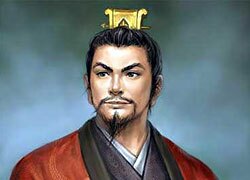 Liu Bei was Prince Zhongshan’s descendant and he was from Western Han Dynasty. He lived between 161 AD and 223 AD. Later, his father became Liu Hong. When Liu Bei was working in the imperial court in order to crack down uprising by the peasants, he made an acquaintance with Zhang Fei and Guan You. The three were then sworn as brothers. Liu Bei would later become Anxi County magistrate but was highly frustrated with the numerous obstacles his superior had created towards him.
Liu Bei was Prince Zhongshan’s descendant and he was from Western Han Dynasty. He lived between 161 AD and 223 AD. Later, his father became Liu Hong. When Liu Bei was working in the imperial court in order to crack down uprising by the peasants, he made an acquaintance with Zhang Fei and Guan You. The three were then sworn as brothers. Liu Bei would later become Anxi County magistrate but was highly frustrated with the numerous obstacles his superior had created towards him.
As a result, Liu Bei beat the emperor and quit his job. He then left the county for an area ruled by Emperor Gongsun Zan to seek safety and shelter. Liu Bei would later become the new magistrate of the Pingyuan County where he was now living. In 221, he declared himself to be the new emperor for Han Dynasty but he would die two years later in Baidicheng city, present day Chongqing area.
Being an excellent militarist and ruler, Liu Bei is today remembered for his numerous merits like his love for the common people, he appointed government officials who were virtuous, he respected everyone in the society, he was very just and kind when it came to state affairs and he was fair and honest to people of different walks of life. As a result, Liu Bei attracted many military and political elites to his land and they worked devotedly for him.
The personality of Liu Bei was a vivid reflection of the philosophical and political theories in the history of Chinese people. Both Mencius and Confucius had greatly emphasized on the importance of benevolence policy and rule of virtue. He told kings that they could rule the people by virtues while influencing them with their gracious morality and excellent personality. Liu Bei was thus a respectable and just political leader who is celebrated even today in Yangtze culture.
You may be also interested in Yangtze Culture as below:



